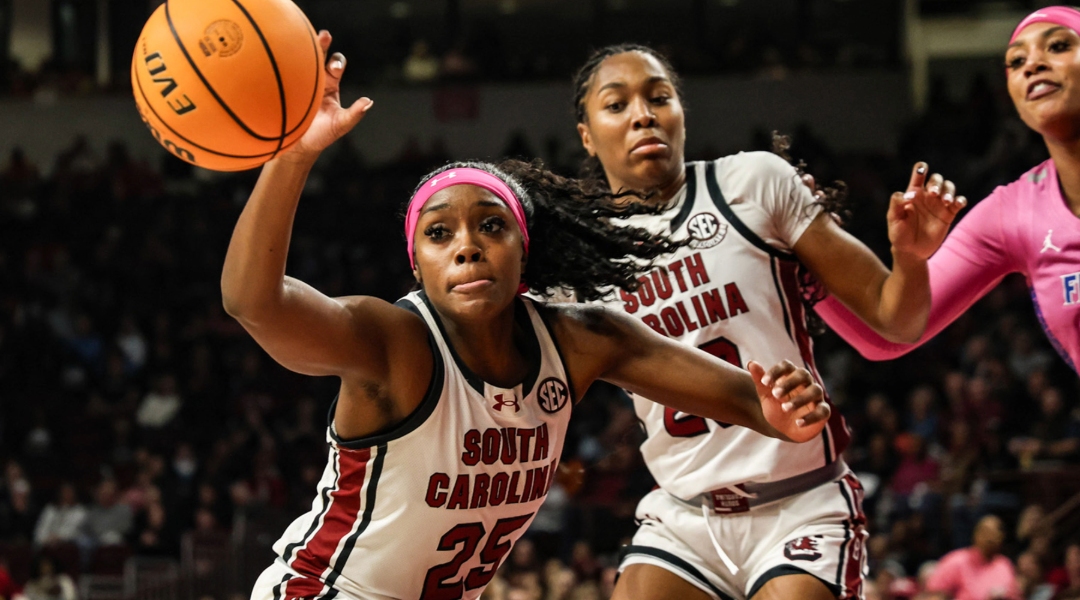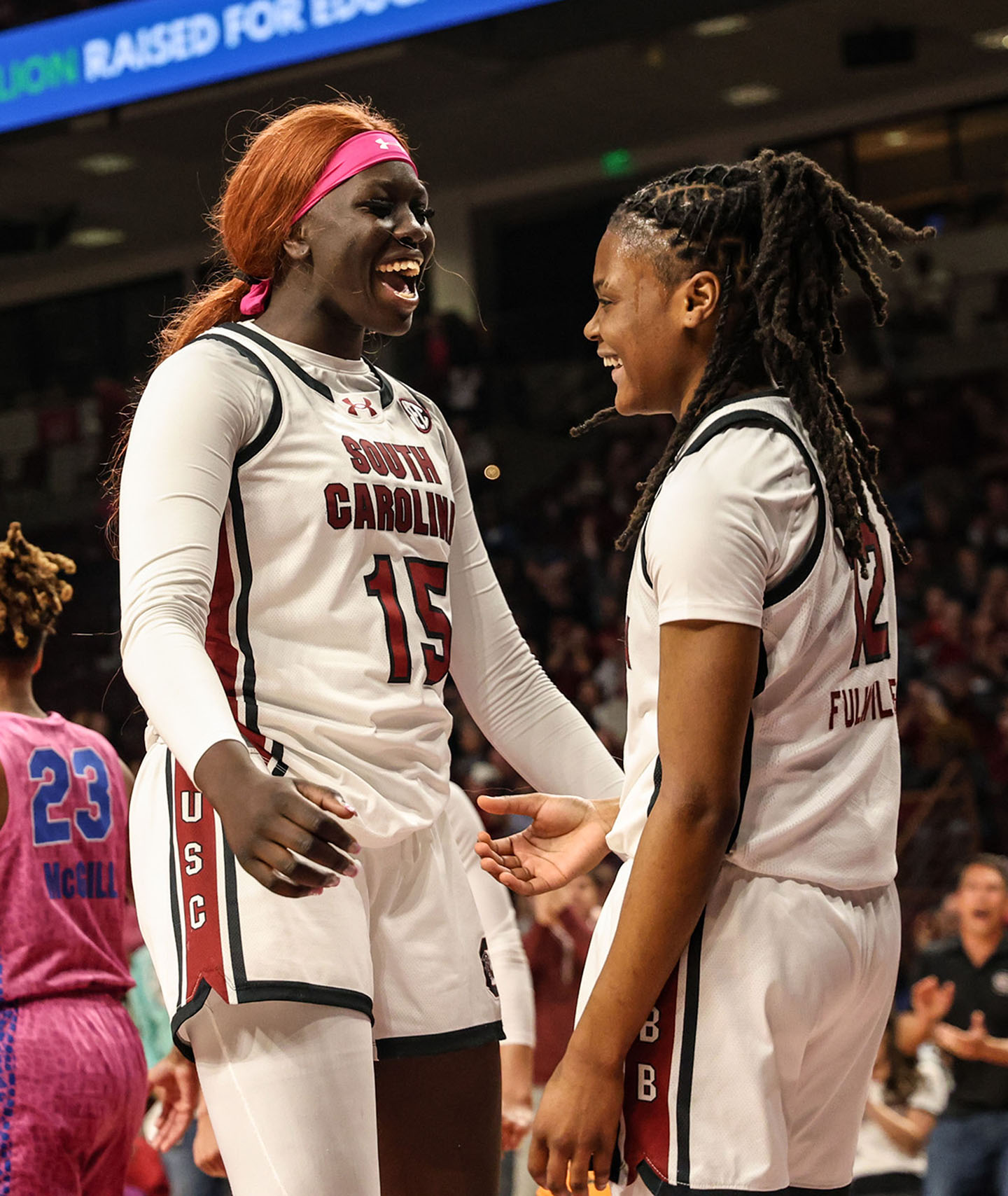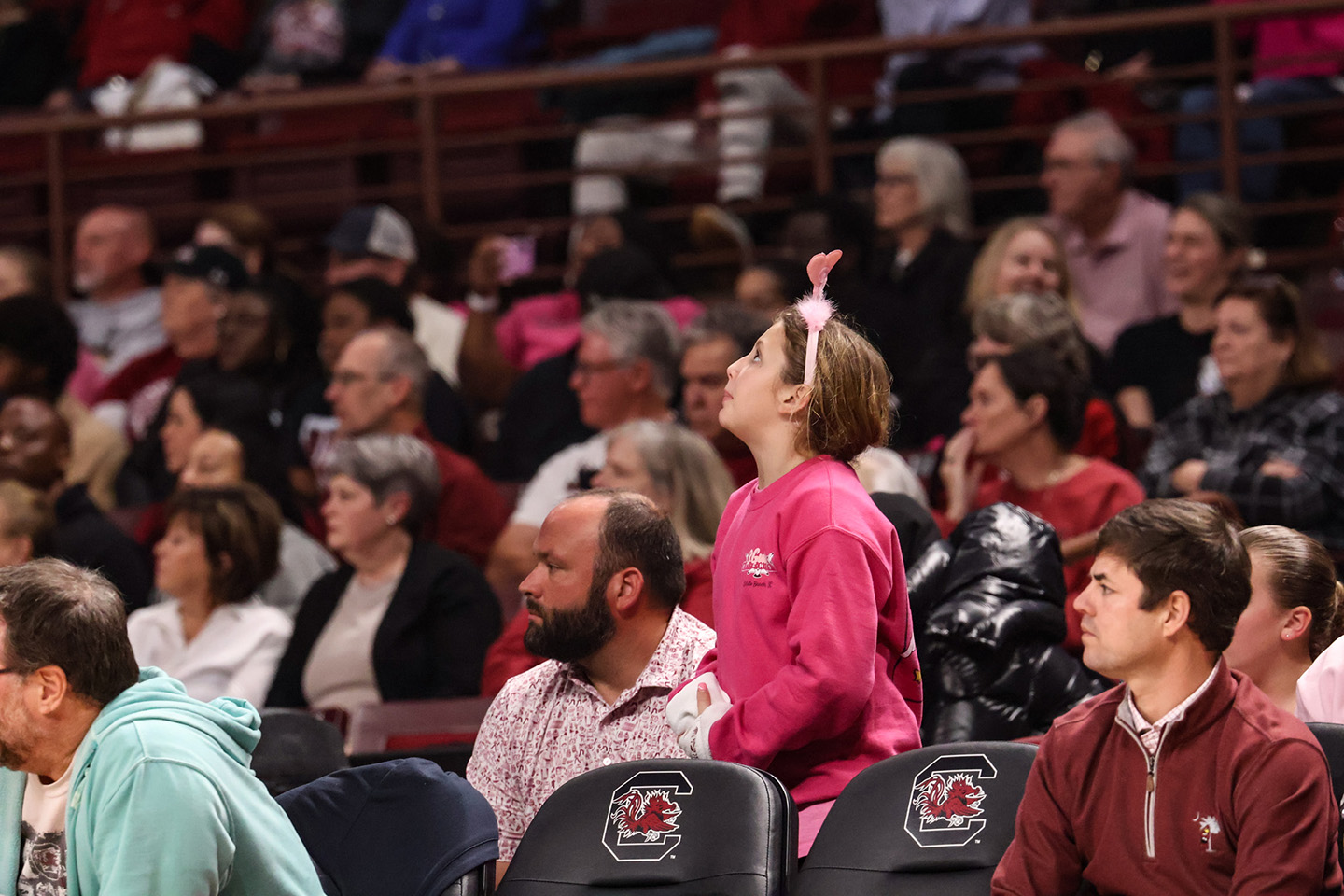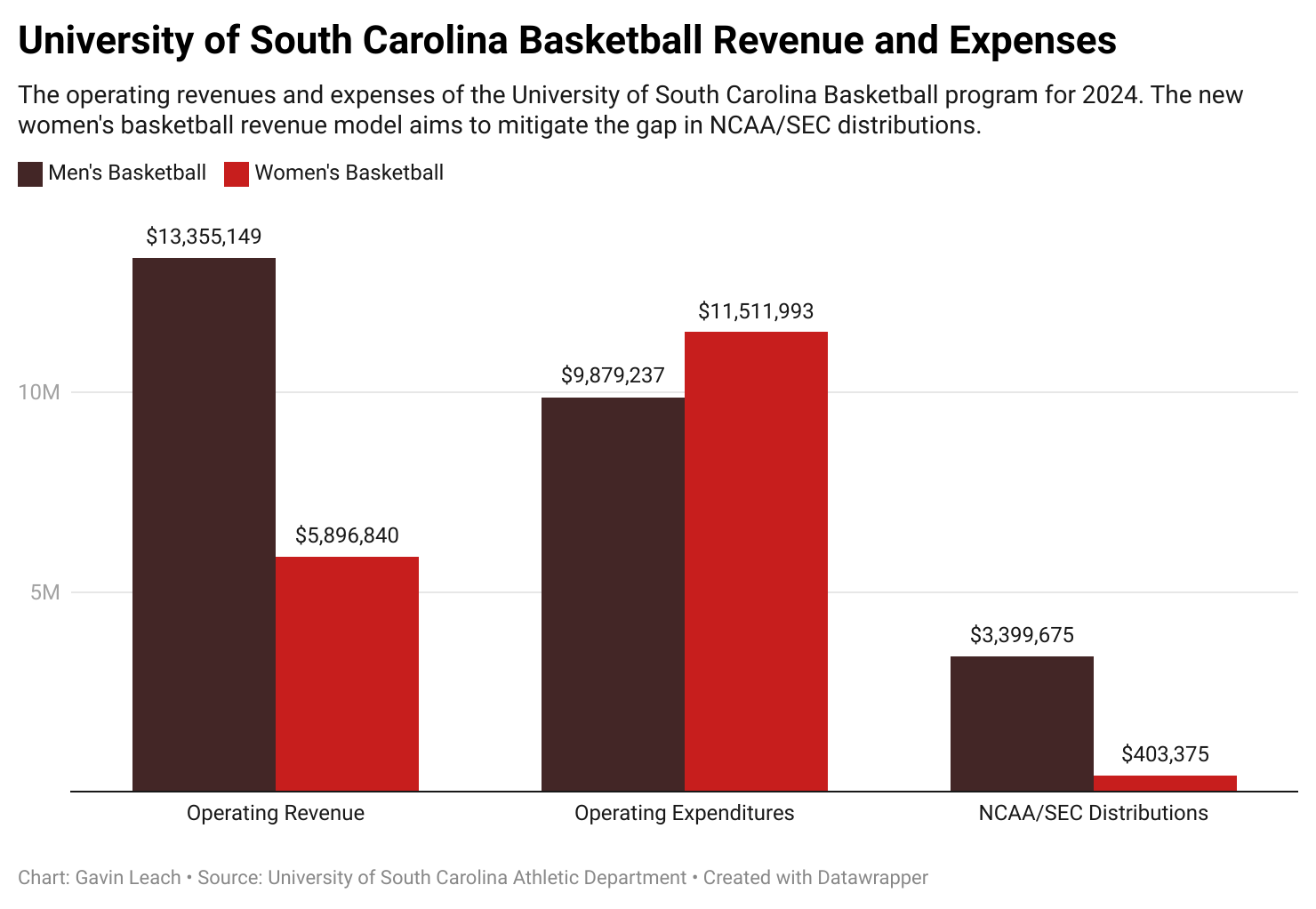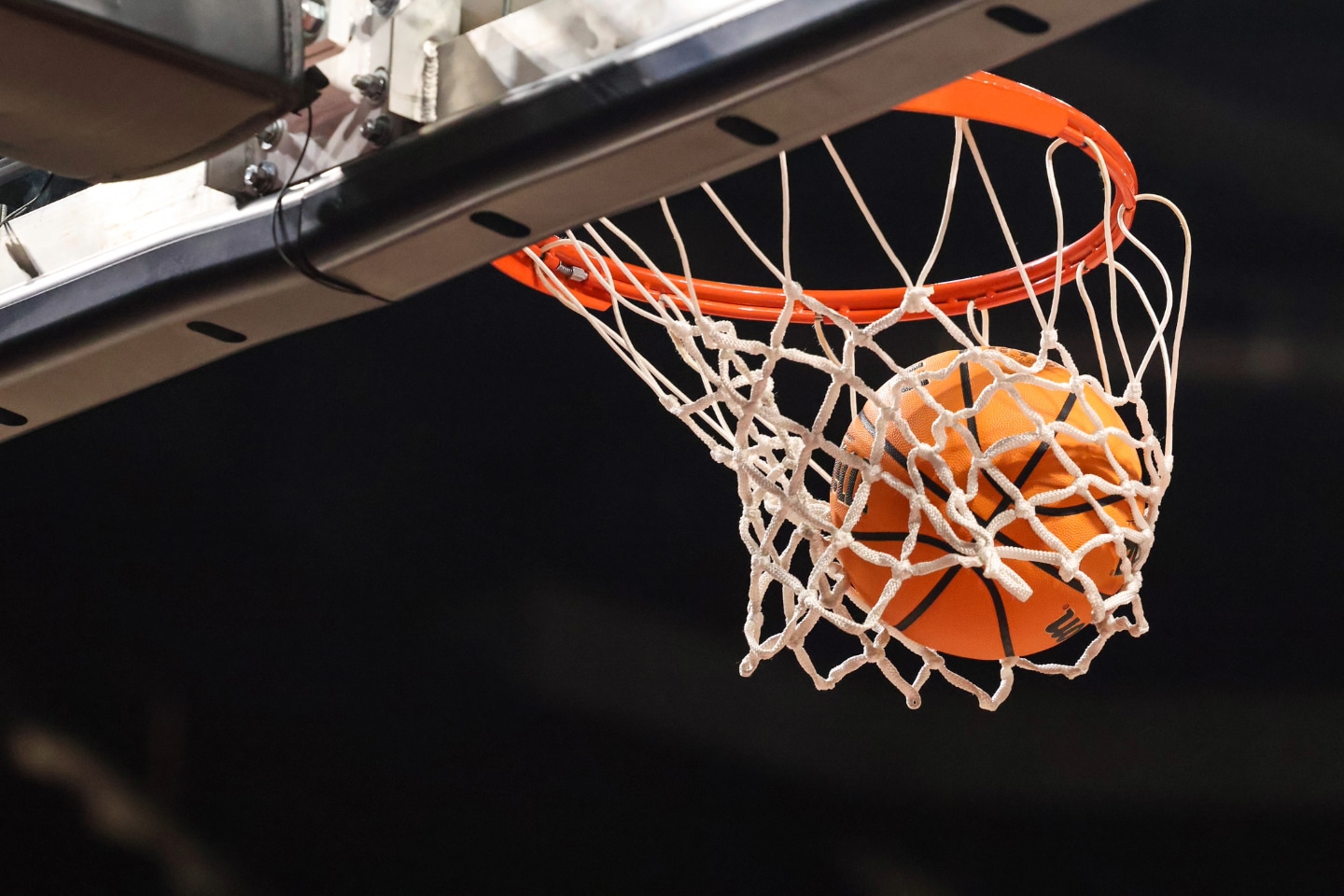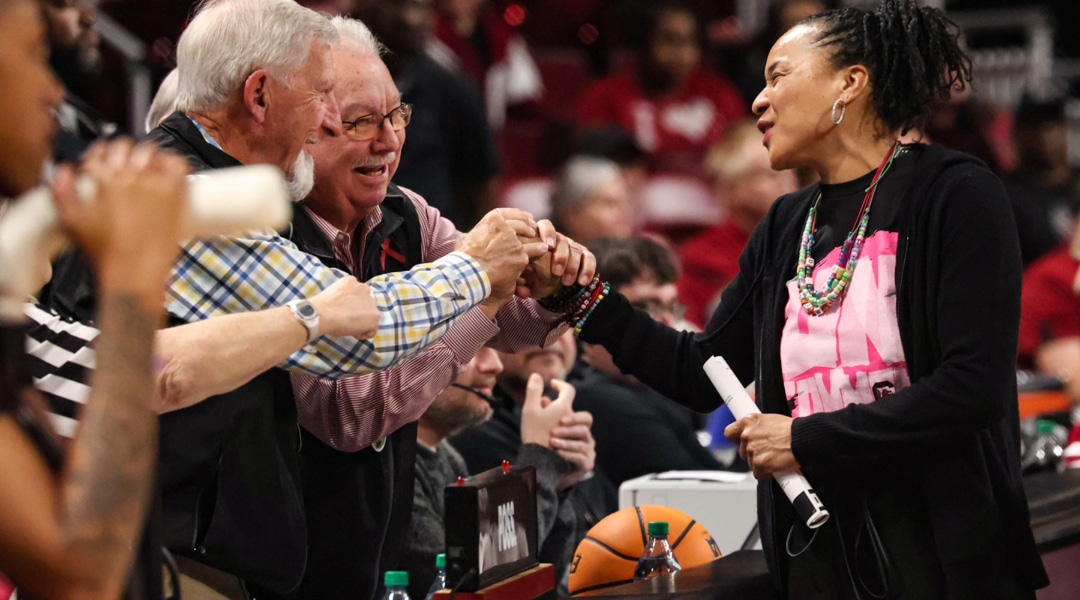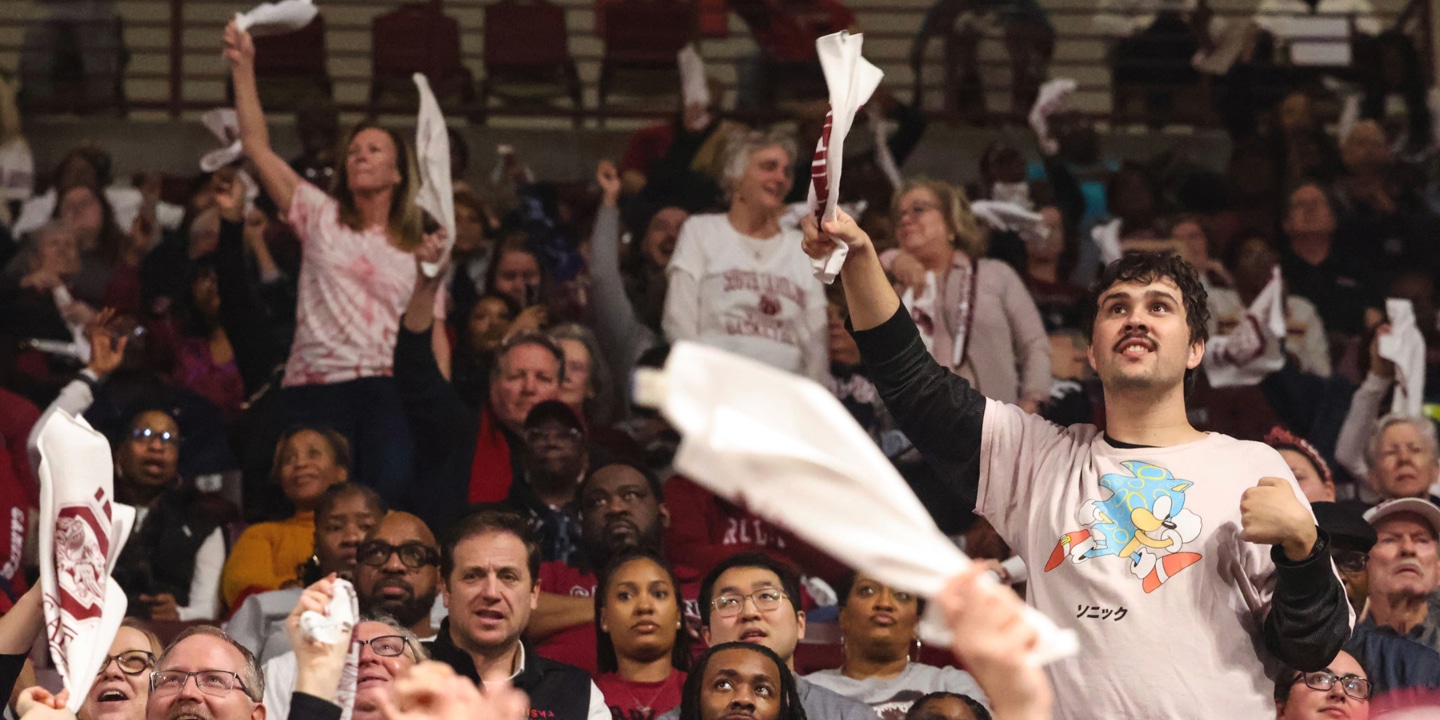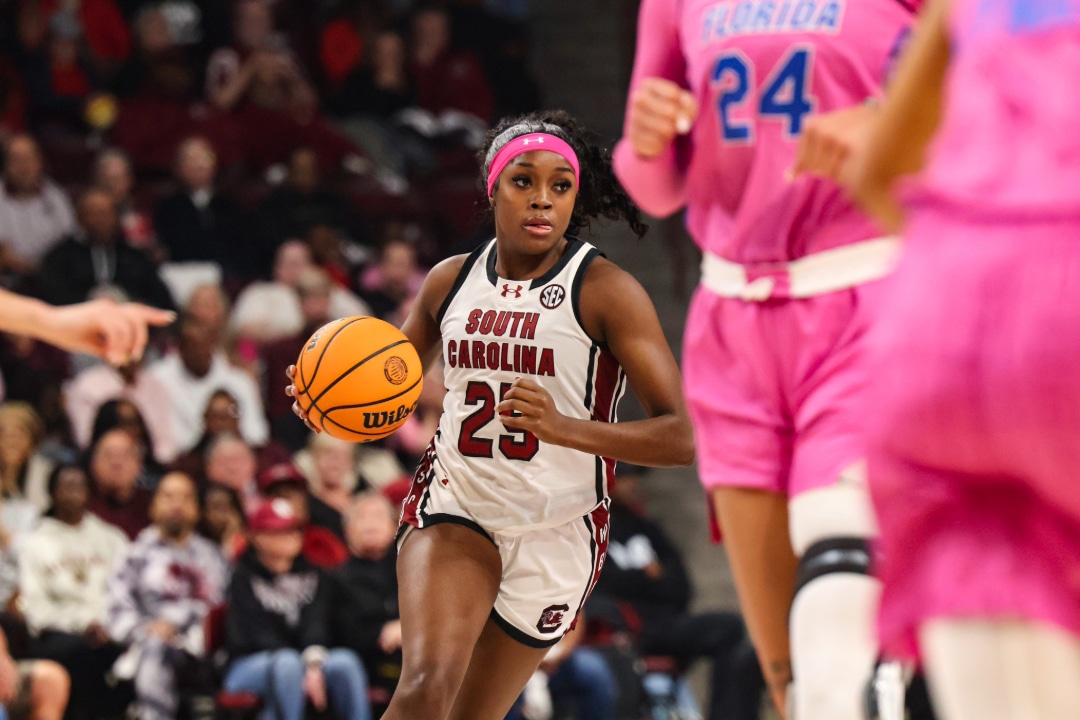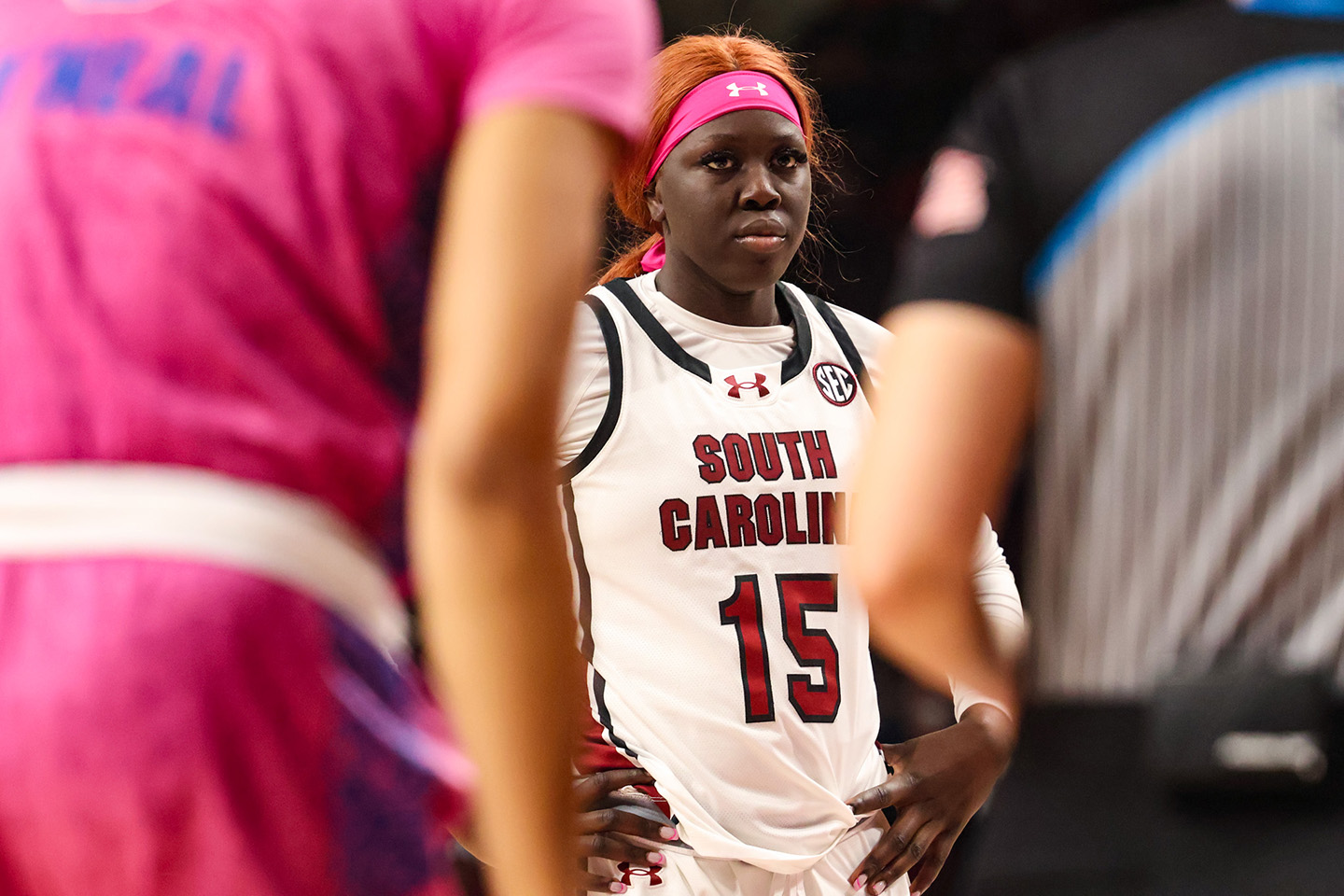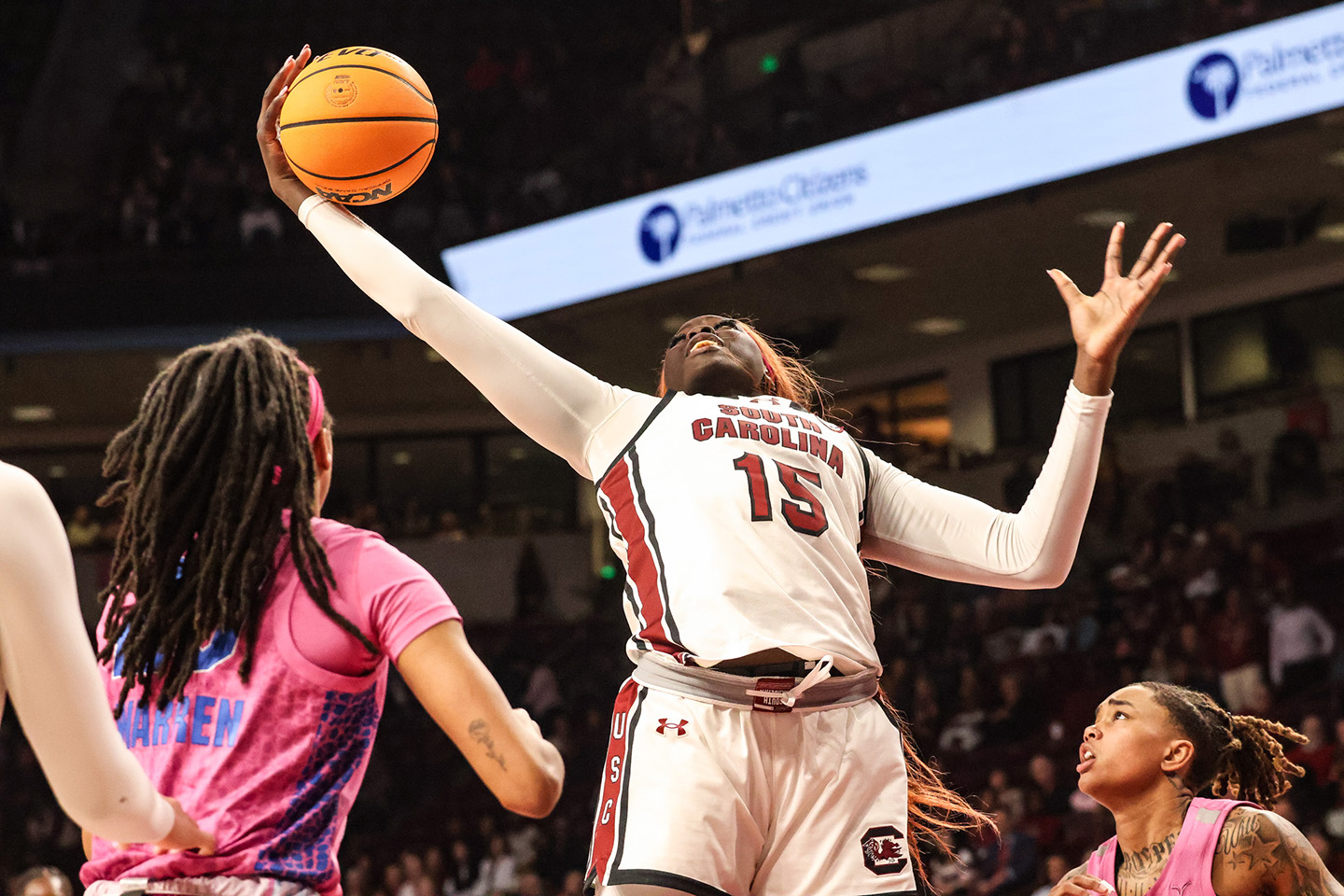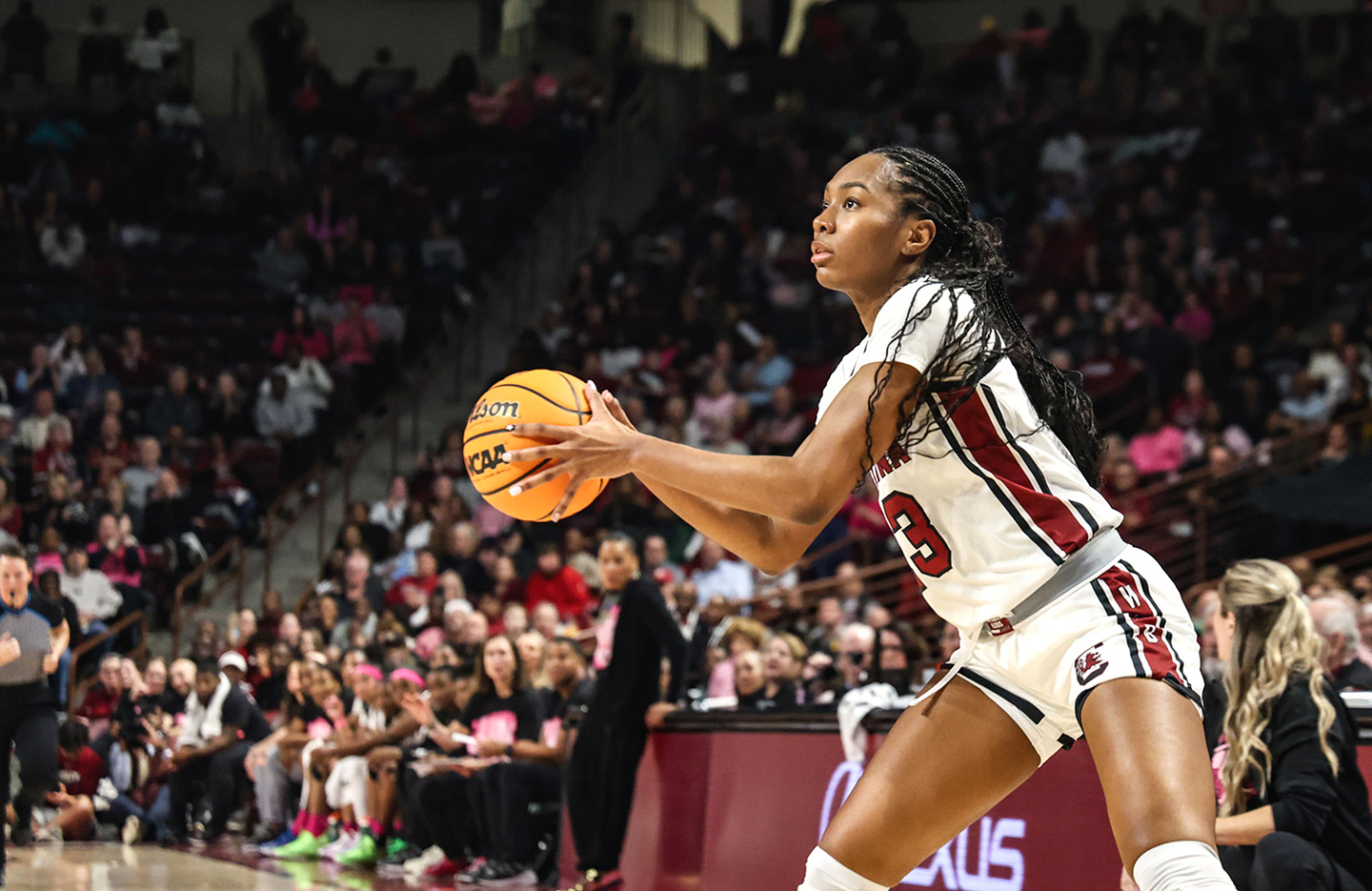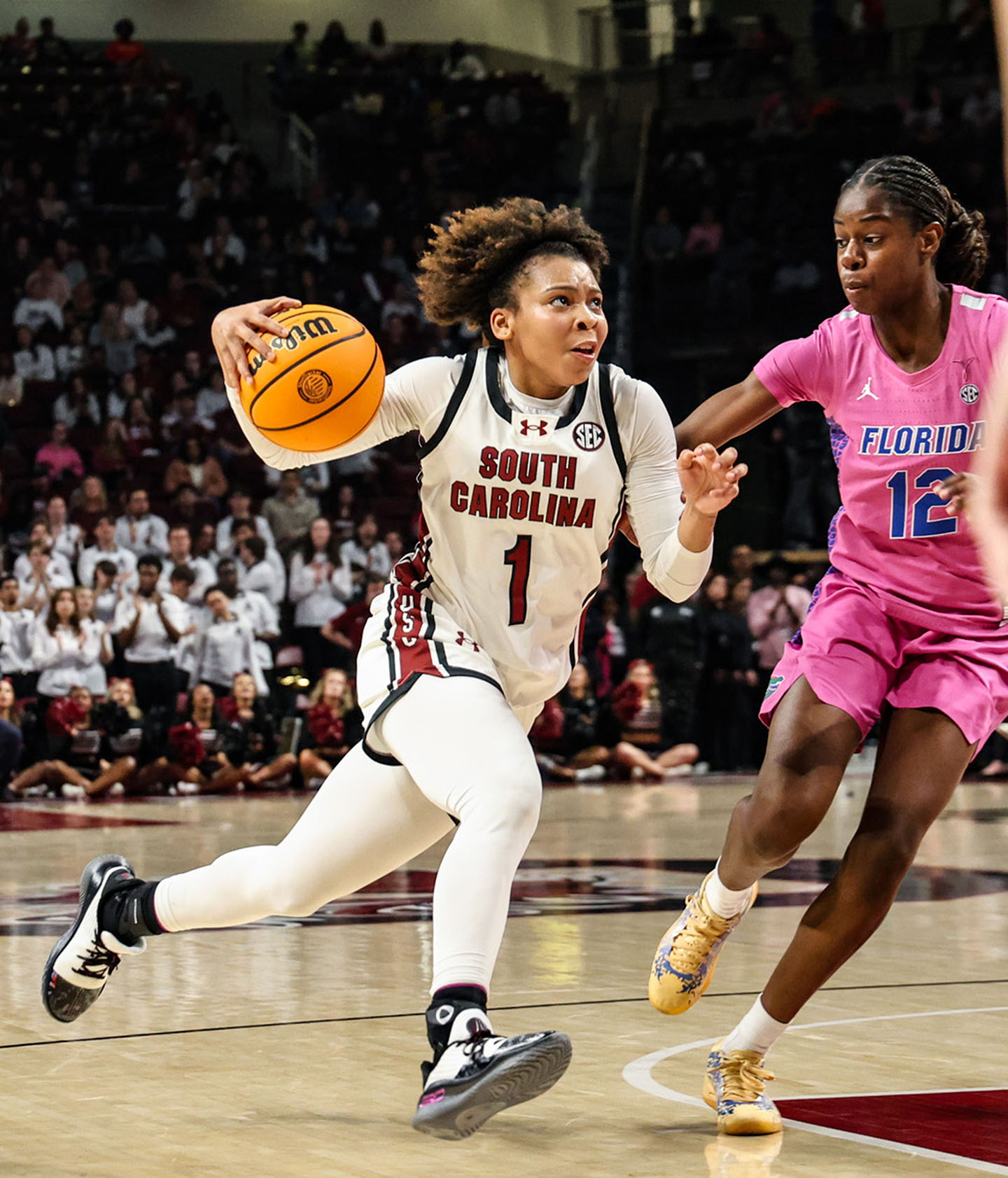Senior guard Raven Johnson and senior guard Bree Hall work as a team to get to the ball. The Gamecocks Women’s Basketball team beat the Florida Gators at home on Thursday, 101-63. (Photo by Katie Cannon/Carolina News & Reporter)
Women’s sports recently hit an equity funding milestone even as players created record-breaking moments.
The NCAA in January approved the creation of women’s basketball funds for teams competing in the 2025 Women’s March Madness tournament. Teams now will be able to earn financial rewards for their conferences similar to the way men’s teams do. It marks the next great step in the struggle for gender equity in sports following the 2021 decision to extend the “March Madness” branding to the women’s tournament.
The South Carolina Gamecocks women’s basketball team, led by coach Dawn Staley, already has captured the nation’s attention and elevated the legitimacy of women’s sports in recent years. The new revenue model recognizes their efforts, advocates say.
Jeff Tallant, chief financial officer for the University of South Carolina athletics department, sees the new revenue model’s potential.
“I think the NCAA realized that women’s basketball, specifically, is evolving,” Tallant said. “I can’t say whether it’s profitable or not, but I know they wanted to allocate and give money to those schools.”
The men’s basketball team is the only profitable program at South Carolina beyond football, primarily due to revenue earned during March Madness. The women’s basketball team, as an SEC school, is projected to bring in $120,000 from March Madness within the first year under the new model, Tallant said. The revenue isn’t the a significant amount, but it will help funding throughout the entire athletic department.
“It’s not a whole lot we’re getting from the NCAA, but every bit helps,” Tallant said. “And it helps us to continue to have what I would argue is the best women’s basketball program in the country at this point.”
South Carolina women’s team is no ordinary one. The reigning national champions are accustomed to outshining other teams. And everyone from the top down understands that.
“South Carolina has heavily invested in women’s basketball, obviously from the record-breaking contract that we provided to Coach Staley,” Tallant said. “Historically speaking, that’s something we as an institution have invested in, probably at the top of the nation.”
Staley makes more money – $4 million a year – than any other women’s basketball coach in the nation.
Gamecock women’s basketball operating revenues total around $6 million, which doesn’t completely offset the program’s expenses of $11.5 million, according to the USC Athletic Department’s statement of revenue and expenses. This deficit makes new revenue streams essential for moving closer to the break-even point rather than investing further.
What’s more meaningful than the revenue are the NCAA’s efforts to bridge the gap in men’s and women’s sports, Tallant and others say.
Julie Roe Lach, a member of the Women’s Basketball Coaches Association, believes the league is moving in the right direction.
“For several years, NCAA members have been working to advance gender equitability in college sports, including and especially in women’s basketball, and the passage of this proposal marks a significant step toward that goal,” Lach said.
The revenue model acknowledges the value of the women’s league and the NCAA’s efforts aim to quantify that value. It’s especially beneficial for smaller schools that haven’t invested in women’s basketball to the extent that South Carolina has, Tallant said. It offers small schools a tangible incentive to elevate their women’s teams.
USC redshirt freshman forward Adhel Tac and sophomore guard MiLaysia Fulwiley celebrate after making a basket. (Photo by Katie Cannon/Carolina News & Reporter)
A young Gamecock fan looks toward the scoreboard. (Photo by Katie Cannon/Carolina News & Reporter)
The Gamecocks warm-up on Thursday for their game against the University of Florida at Colonial Life Arena.
ABOUT THE JOURNALISTS

Gavin Leach
Leach is a senior journalism and sport management student at the University of South Carolina. He is an aspiring sports media professional and hopes to work in a major market such as his hometown of Chicago. He completed an immersive study abroad experience in Barcelona, where he refined his skills and broadened his global perspective.

Katie Cannon
Cannon is a junior studying multi-media journalism at the University of South Carolina’s School of Journalism and Mass Communications. Photography for her has become about more than just taking pictures. It’s turning ordinary moments into something unforgettable.

